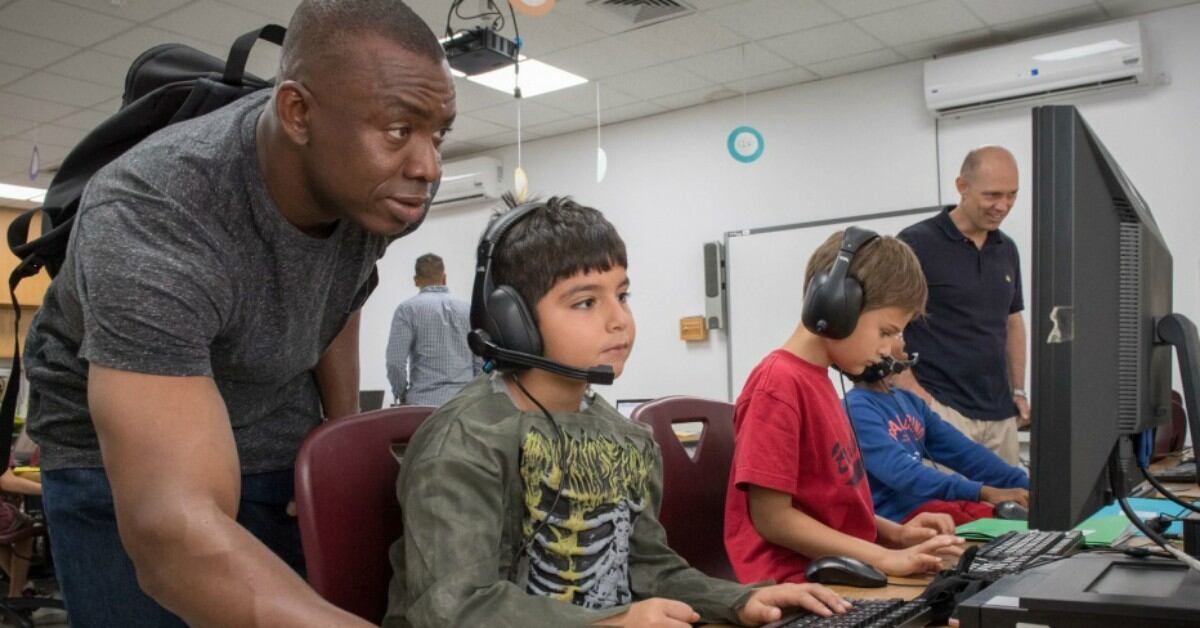An elementary school for military kids in Bahrain has implemented a controversial new policy that bans any type of physical contact between students — from hugs to horseplay.
And while the school’s principal sees the No Body Contact rule as a temporary way to curb a recent spike in recess roughhousing, some parents say the policy goes too far.
“Young children need to be able to physically interact with their friends to feel secure, to release energy, and to help them learn,” said Theresa Tamash, who has a third-grade daughter at the school.
Tamash told Military Times in an email the new policy is “drastic” and was implemented without any prior notice to students and parents that there were ongoing problems at recess.
Bahrain School principal Penelope Miller-Smith referred a request for comment to the Department of Defense Education Activity. However, in earlier comments to Stars and Stripes, which first reported the story, she said the rule is only temporary as the administration works on a more permanent solution to “help reduce touching that is hurtful, unwanted and in some instances misunderstood.”
DoDEA spokesman Will Griffin said this technique, intended only to address an immediate issue, has previously been used at other schools and is seen as "a teaching and learning opportunity.”
In a Jan. 30 email to parents, obtained by Military Times, Miller-Smith wrote, “Over the past weeks our recess behavior has escalated to include frequent incidences with children touching, pushing and such to one another. For example, the game of tag often gets rough or children don’t realize how their tap is interpreted as a push. While many of these incidences are not intentional children are being hurt or feel like they are being hurt.”
In the email, the No Body Contact rule, dubbed NBC for short, is defined as “any touching to peers.” Students who break it will receive an immediate 1- to 3-minute time out.
“While many of the touching is meant as a gesture of kindness and friendship without a common and simple definition it becomes difficult to enforce,” the email states.
Griffin described the rule as a “baseline” from which to work and said DoDEA already has established policies for student behavior and discipline.

Tamash conducted an informal Google survey of Bahrain School parents on Facebook and collected 30 responses in two days. The large majority of respondents, 73 percent, believe NBC is negative for the school environment. Thirteen percent said it was positive, and another 13 percent were undecided, according to the results Tamash shared with Military Times.
Carmen Sunderland, a Navy spouse with two boys enrolled at the school, also opposes the policy, which she called “extreme.”
If it’s only temporary, that would be more appropriate, she said. But she feels the school has not communicated that to parents. It’s not clear how long the rule will be in place.
“The Bahrain School is full of military kids, many of whom PCS in/out weekly,” she said via Facebook message. “It’s a transient group in a very different culture/environment. It takes time to adjust. Kids should be able to hug their friend goodbye and give a high five to the new guy. Kids should be taught how to play tag without hurting, and kids that don’t obey the rules for any game should be the ones put in time out.”
She said kids like to hug or hold hands with their friends and should feel like it’s OK to do so. Being allowed to touch outside of school, but not at school, sends mixed signals to children, especially little ones.
“Kids go to school to learn, including time at recess. It’s another great chance children have to learn to socialize, play the right way, and make good choices during a game or activity."
Griffin said the rule "was never designed as a never-touch-anyone-else policy. That’s absolutely not what it was.”
“At the end of the day, this issue is about rough play at recess,” he said. “That’s the whole crux of the issue. The principal took some issues to address that rough play issue and allow students to be part of the process.”
He said the school is taking this time to teach children the difference between appropriate and inappropriate touches in a game of tag, for example, or what constitutes a safe and fun interaction.
Tamash hopes that as the principal and others work on a more permanent solution, they will use the opportunity to teach children about consent — that they may not touch anyone unless they want to be touched, whether it’s by hugging, holding hands or wrestling, she said.
She wants the school to address whether playground monitors will handle aggression.
She also said parents have signed up to be school volunteers and provide additional eyes during recess time, but they have not been called on to do that.
“I don’t think there is [a] simple answer to keeping a playground free from occasional aggressive play, but NBC is certainly not teaching any positive lessons,” she said.
Tamash said she has voiced her concerns to Miller-Smith, and the principal has been responsive. The two have scheduled a meeting to discuss the issue next week, she said.
Military Times contributor and former reporter Natalie Gross hosts the Spouse Angle podcast. She grew up in a military family and has a master's degree in journalism from Georgetown University.





